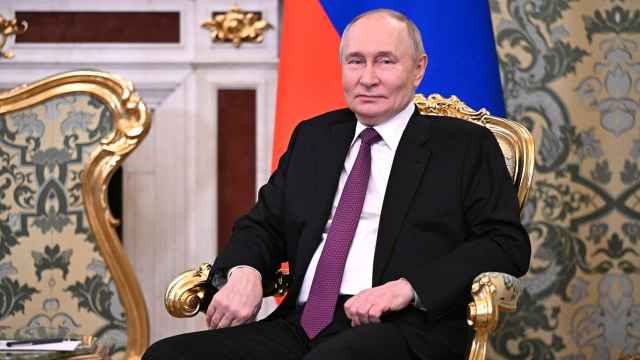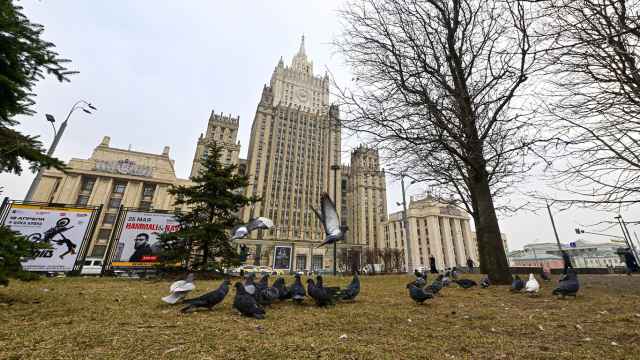
Olga Bantsekina
Chairman, AEB HR Committee
and Chief Representative,
Coleman Services UK
Returning in my memories back to 1995, I can hardly remember any of my acquaintances who would not ask "what do you say you are doing?" after my mentioning my first job in the recruitment field for a world leader in the recruitment industry. I believe almost no one knew what recruitment was about at that time in Russia, moreover, I would not make a big historical mistake if I say recruitment practically did not exist yet in this country.
Thanks to the worldwide well-known industry leaders (newcomers to the Russian market in the early '90s) recruitment arose as a concept and started its development on this huge territory.
It is interesting to remember today how the market looked like at that time — few international businesses in rare business fields such as consulting, FMCG or oil and gas, awaiting international standards of recruitment they had gotten used to in Europe or America — from one side; even less numbers of agencies present in Russia with an absolutely different attitude to search and selection processes to what was expected (I need to state here that the majority of local Russian agencies were so-called "job placement" agencies that earned money taking certain fees from candidates, trying to place them further on for any position, be it appropriate for the person or not) — from the other; semi-qualified Soviet-type candidates with poor language skills (if any at all) — from the third.
Companies as well as agencies themselves experienced a huge shortage of potential candidates for the majority of positions due to specifics of the Soviet-style education and business, lack of needed qualifications and experience, as well as the overall poor foreign language skills in Russia.
Professional recruiters knew each of their good candidates personally for years, becoming "business friends" for them, always being aware not only of their job intentions and plans but also of all their family news and being constantly ready to support them in their career development and make them the next vacancy proposition with another client company as soon as the guarantee period with the previous one was over.
Logically, recruitment in Russia started from the capitals — Moscow and St. Pete, but the situation started changing in the early 2000s, both international and big Russian (usually Moscow-based) agencies opening their regional offices and bringing higher standards of service together with higher fees to the local recruitment markets, giving rise to competition with the local agencies, pushing up the level of professionalism and making locals better meet clients' requirements.
This move was stimulated by new investment plans of different international businesses, especially retail and industrial enterprises, headed toward the Russian regions in their search of better investment opportunities.
However, though it should be taken into account that due to Russia's vast size, regional differences are always extremely marked and have a profound impact on the recruitment business. Some trends that we have observed in Moscow and St. Pete in the '90s have found their reflection in the regions during the next decade. Thus, companies keen to develop their business outside of the capitals encountered a shortage of qualified personnel in many sectors, especially high-tech and engineering, as well as candidates' poor language skills.
Another general trend has always been motivation of potential candidates to consider new job openings. Often, during interviews, a candidate will talk a lot about his willingness to develop professionally, but when presented with a choice between interesting projects and continuous training, or a higher salary — he will choose the latter. Brand names and professional interest are often of lesser consideration than net salary for Russians.
Since the '90s recruitment market has gradually developed.
While the capitals' labor markets approached maturity some time ago, the regional ones are still developing at different rates depending on their general economic situation and investment climate.
Nowadays we have many recruitment companies, both local and international, big and small, opening new offices all over the country according to their clients' business needs and working on a distant basis, applying international standards and best practices not only in recruitment and executive search itself, but also in personnel outstaffing and leasing, industrial staffing, HR consulting and outsourcing services.
Recruitment companies are working hard despite the serious drawbacks of the Russian educational system, its labor legislation, poor demographic situation having its roots back in the late '80s and early '90s. They are adapting to the constantly changing environment and clients' demands, changing their fees and widening service conditions, competing with one another for better contracts.
The recruitment market in Russia has passed different stages of growth and maturation, the candidates' market has transformed to the employers' one and backward, we survived the two economic crises (1998 and 2008), destructive for the industry, learned our lessons and changed our attitudes. Still, recruitment is quite a specific business area in Russia.
Competition here is high and tough, market information is still close to zero or unreliable, many agencies are operating through nonlegitimate "gray" schemes till nowadays (especially it concerns the outstaffing area, which, unfortunately, is not yet regulated by the Russian labor law).
These days, as always, we are short of professional, experienced and well-educated potential candidates. Recruiters, both external and internal are constantly searching the market with the only purpose to identify and attract the best available talent (often starting almost with the candidates' school days or first years at college).
The mobility of employees has finally started growing in both directions (from Moscow and St. Pete and backward from the regions), though certain regional preferences and specific compensation demands are obvious and the rise in mobility not being of any substantial help under the influence of the Russian demographic pitfall.
Complaining of all the hardships of the local labor market, we are still looking into the future of the recruitment industry in this country quite optimistically, our belief based on the evident breakthrough it has already experienced recently and the huge steps it is making at present.
A Message from The Moscow Times:
Dear readers,
We are facing unprecedented challenges. Russia's Prosecutor General's Office has designated The Moscow Times as an "undesirable" organization, criminalizing our work and putting our staff at risk of prosecution. This follows our earlier unjust labeling as a "foreign agent."
These actions are direct attempts to silence independent journalism in Russia. The authorities claim our work "discredits the decisions of the Russian leadership." We see things differently: we strive to provide accurate, unbiased reporting on Russia.
We, the journalists of The Moscow Times, refuse to be silenced. But to continue our work, we need your help.
Your support, no matter how small, makes a world of difference. If you can, please support us monthly starting from just $2. It's quick to set up, and every contribution makes a significant impact.
By supporting The Moscow Times, you're defending open, independent journalism in the face of repression. Thank you for standing with us.
Remind me later.





